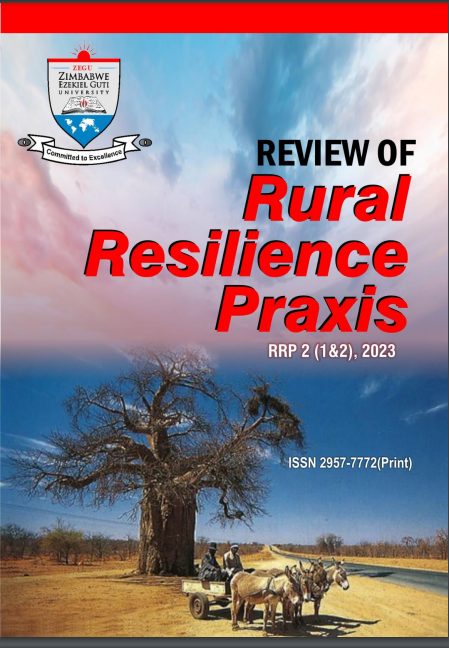Smallholder Maize Production, Input Investment, Productivity And Profitability In Ward 1, Chikomba District, Zimbabwe
DOI:
https://doi.org/10.71458/vz0mqc38Keywords:
tenure security, leasehold tenure, smallholder farmers, land tenureAbstract
Most of smallholders in Zimbabwe under the leasehold tenure system are beneficiaries of the Fast-Track Land Reform Programme (FTLRP) of 2000. It is generally argued that the leasehold tenure system has unprecedented impact on agricultural production as farmers fail to secure bank loans using leased land as collateral security. This article is premised on a study whose main objective was to determine the impact of leasehold land tenure system on productivity sby mallholder maize farmers. The study was carried out in Ward 1 of Chikomba District in Mashonaland East Province. Descriptive research design and primary data gathered from the randomly selected 87 farmers out of the 673 farmers, using a structured questionnaire, were used for this study. The data gathered was comprehensively analysed using both correlation analysis and regression analysis to achieve the study objectives. The results revealed that the leasehold tenure system limits farmers‟ access to credit, meaning, therefore, that the leasehold tenure has a negative impact on input investment, maize production and profitability by the smallholder farmers in Chikomba District. The study concludes that the leasehold tenure system has a negative impact on input investment, production of smallholder maize farmers as it discouraged farmers‟ access to credit, a key factor that determines farmers‟ input investment and production. The study recommends the Government of Zimbabwe to change the tenure system on smallholder farmers to a more favourable system to improve smallholder farmer input investment, productivity and profitability.




